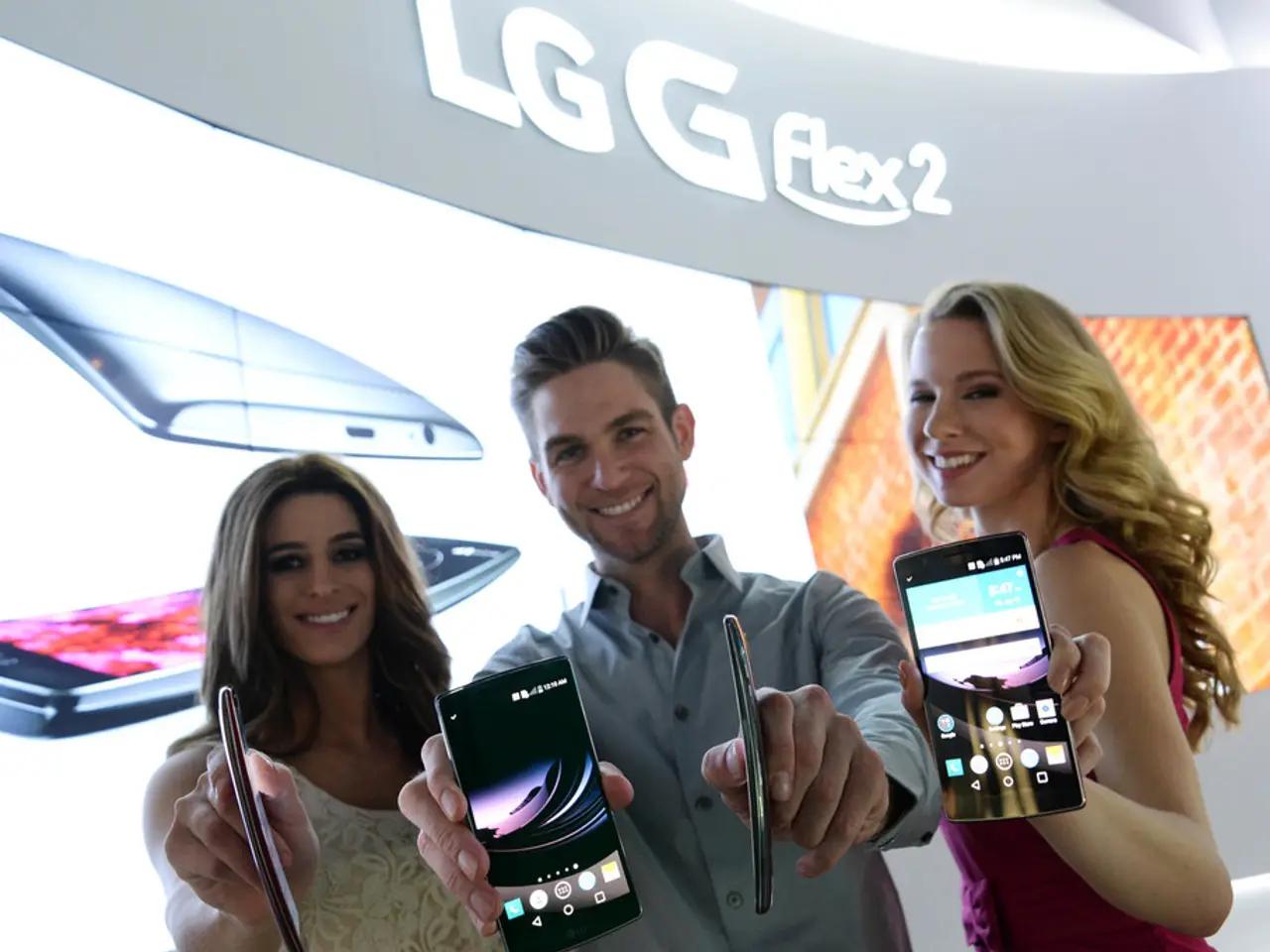Contest for Preeminence in Digital Wallets Intensifies
In the thriving European mobile payments market, the competition among established players like Apple Pay and Google Pay, alongside emerging entrants such as Volksbanken, PayPal, and newer platforms like Wero, is heating up. This battle, dubbed the "War of Wallets," is expected to expand rapidly, with the market valued at USD 136.45 billion in 2025 and projected to grow to USD 476.25 billion by 2030 [1].
Current Status
Apple Pay has expanded its Tap to Pay service to nine more European countries in March 2025, collaborating with acquirers such as Nexi and Adyen. This move allows Apple to target micro-merchants directly, increasing merchant acceptance and ecosystem stickiness [1]. Apple Pay is projected to reach over 500 million global users in 2025 [5]. Google Pay, on the other hand, has integrated with Klarna across European checkouts, aiming to maximize tokenized wallet reach and conversion rates [1]. Google Pay maintains a notable merchant acceptance footprint in Europe.
PayPal, one of the major players in Europe, has not seen any specific recent developments. However, its presence contributes to diversified consumer options and competition [1]. Emerging entrants like the German Volksbanken are actively innovating with embedded finance solutions and bank-led models, aiming to capture SME and local retail segments traditionally underserved by global wallets [2]. Wero, another challenger, offers multi-vertical SME tools and expense management, with early traction in the UK and US markets and a strategic Mastercard partnership targeting community and regional banks [2].
Potential Impact
The entrance and growth of bank-led wallets like Volksbanken’s offerings and challenger fintechs (e.g., Wero) introduce bank-backed alternatives to tech giants, potentially increasing competition in pricing, features, and user experience in Europe’s heterogeneous markets. Alliances like the EuroPA arrangement enhance interoperability and cross-border transactions, which could shift usage patterns away from dominant global wallets toward more regional or collaborative solutions [1].
Government support for open banking and pay-by-bank initiatives, such as the UK government's tender for GOV.UK Pay upgrade, indicates regulatory facilitation for instant, scheme-agnostic payment methods that may challenge traditional wallet models or coexist alongside them with lower fees [1]. The rapid growth of digital wallets and prepaid cards highlights substantial consumer demand and transaction volumes, driving innovation and investment across the sector [4].
New Developments
The Digital Markets Act (DMA) initiated by the European Commission has opened the NFC interface on iPhone and Android devices, allowing third-party providers to offer their own payment solutions without participating in Apple Pay or Google Pay. This move aims to promote competition, reduce dependence on a few players, and enable more players to earn a piece of the mobile payment pie [3]. PayPal has announced its entry into the point of sale (POS) via its own app on iPhone and Android, using Mastercard for transactions [2].
The outcome of the competition is uncertain, and it will likely depend on convenience, integration, and whether detours will be necessary for customers. The topic is exciting for payment enthusiasts, as it brings new possibilities for mobile payment solutions. However, breaking away from Apple Pay has advantages and disadvantages. Advantages include increased competition and reduced dependence on a few players, while disadvantages include potential extra effort for customers and loss of Apple ecosystem integration [3].
As the War of Wallets continues, it is essential to consider the societal mood and growing awareness of digital European sovereignty. Prominent figures like Miriam Wohlfarth believe that consumers will scrutinize their payment providers more in the future [3]. Players like PayPal, Wero, Twint, or Payback, which are currently outside the mobile payment ecosystem, can now potentially conquer another access point to the point of sale (POS). A cooperation is planned between Wero and other competitors after some tension [2].
In summary, the War of Wallets in Europe in mid-2025 is intensifying with Apple Pay and Google Pay maintaining strong leadership but facing increasing competition from bank-backed wallets and fintech challengers. Strategic partnerships, governmental backing for instant open banking payments, and alliances promoting cross-border interoperability are shaping the competitive dynamics, which should result in broader wallet adoption, enhanced merchant acceptance, and innovative multi-service financial solutions over the coming years [1][2][4].
- The integration of bank-backed wallets like Volksbanken's offerings and fintech challengers (such as Wero) into the "War of Wallets" in Europe can lead to increased competition, potentially offering bank-backed alternatives to tech giants like Apple Pay and Google Pay, resulting in a more diverse landscape in terms of pricing, features, and user experience.
- The introduction of the Digital Markets Act (DMA) by the European Commission enables third-party providers to offer their own payment solutions on iPhone and Android devices without being part of Apple Pay or Google Pay, thereby promoting competition in the mobile payments sector, reducing dependence on a few players, and creating opportunities for more players to earn a share of the mobile payment market.




